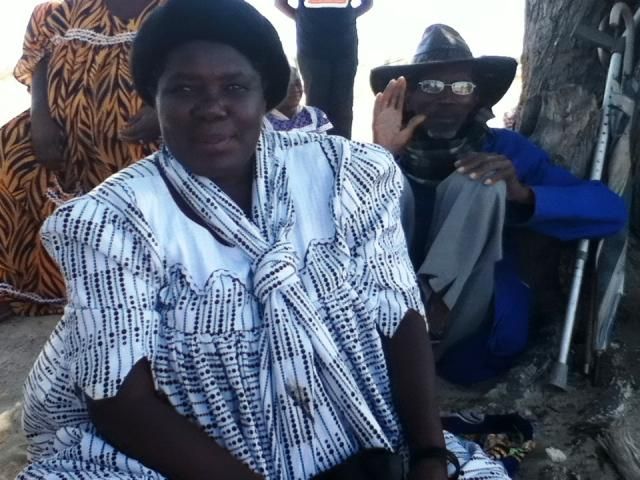Turning the Tide in Namibia

Last week, people from around the world converged in Washington, D.C., to participate in the 19th International AIDS Conference. Through this year’s theme, “Turning the Tide Together,” scientists, policy makers, activists and people affected by HIV/AIDS have affirmed a spirit of hope and possibility that the course of the epidemic can change — and already is changing.
In a similar, yet different manner, July also marked an affirmation of this spirit of hope and possibility in Namibia. Members of the Tobias Hainyeko Support Group of Omangudu, in the northern region of Oshikoto, celebrated their fourth anniversary of working together — and turning the tide on the way HIV/AIDS affects their lives.
The Omangudu group is one of 34 different community-based associations that have grown out of the work of the Diocese of Namibia’s Anglican AIDS Program (AAP), supported by Episcopal Relief & Development. Several years ago, as an extension of the diocese’s NetsforLife® malaria prevention work, program staff began integrating information on HIV/AIDS prevention into their community education sessions. Also, in collaboration with government structures, the training and certification of over 82 volunteer home-based care providers.
These volunteers in turn have worked to ignite other community members to action — leading community dialogues, speaking out against stigmatization, encouraging voluntary testing, providing counseling, and mobilizing support groups for all persons affected by HIV. And, these groups have since become the place where everyone (infected and affected by the disease) can come together and find support for wholistic wellness.
Wholistic wellness gives recognition and reinforcement to people’s physical as well as emotional, intellectual, social, environmental, and spiritual growth. Wholistic wellness can be seen in the members of the Omangudu group, as they shared testimonies of how their participation has entirely transformed the way they feel and live their lives.
“Truly, I was blind, but now I can see; I used to stigmatize others, but now I understand how HIV affects everyone,” declared Selma, a 57-year-old member of the group.
Others similarly voiced the sense of peace they have found in their now open and accepting community. They feel the sense of support as they have people to turn to and who care about them; the sense of power they have in choices and prevention information; and the sense of accomplishment from installing an irrigation system in their group’s vegetable garden.
Not least, they feel the sense of hope as they learn more about the disease, are able to maintain their antiretroviral medication (ARV) regimes with transportation to health facilities paid from their group’s garden profits, and see how they are turning the tide and creating new futures.
———-
Tammi Mott is a Program Officer with Episcopal Relief & Development.
Other blog posts from the 2012 International AIDS Conference: Faith at the International AIDS Conference and Quotes from AIDS 2012
Photo 1: Selma, 57, member of the Tobias Hainyeko Support Group in Omangudu.
Photo 2: Tobias Hainyeko Support Group of Omangudu (in the region of Oshikoto in northern Namibia) standing outside their group garden.


